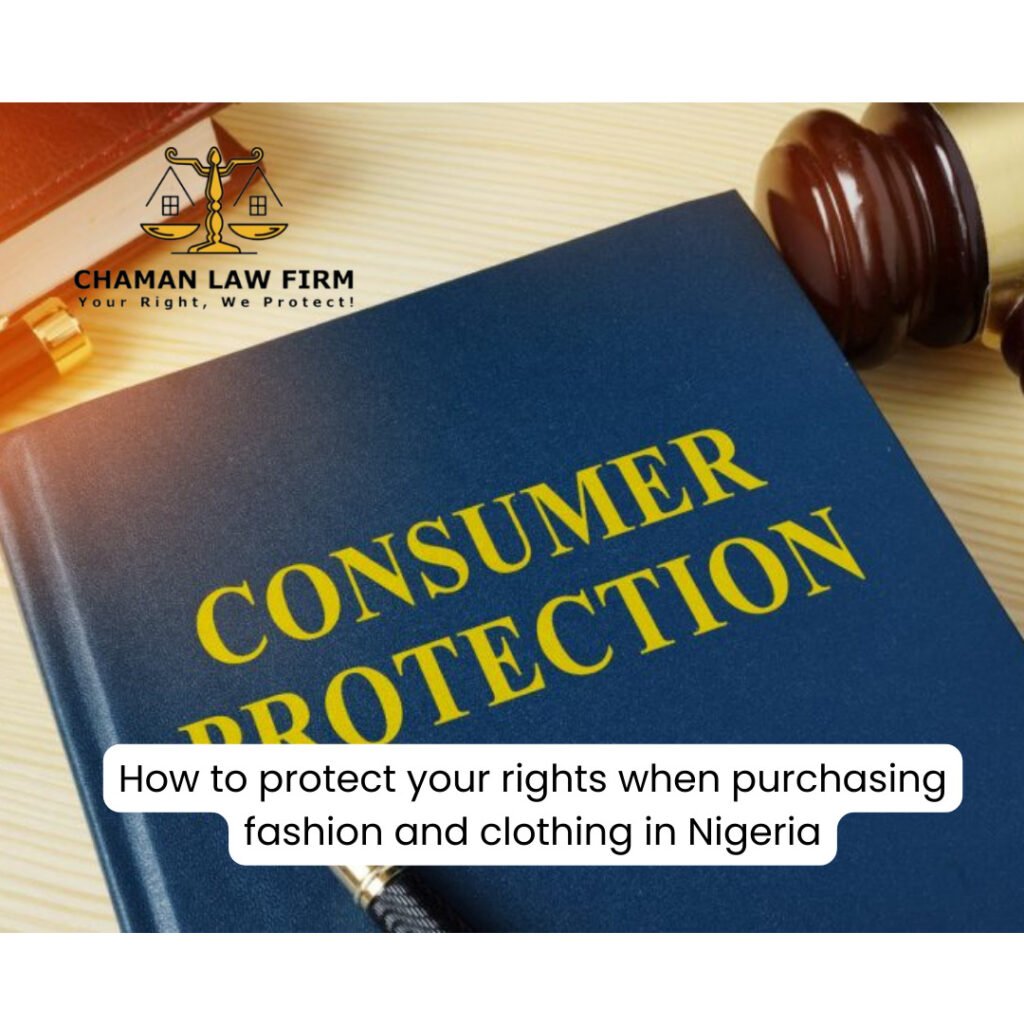How to Protect Your Rights When Purchasing Fashion and Clothing in Nigeria
Purchasing fashion and clothing items is a common practice in Nigeria, but it’s essential for consumers to be aware of their rights and protections when engaging in these transactions. From ensuring product quality to safeguarding against unfair practices, understanding how to protect your rights as a consumer can help you make informed decisions and have a positive shopping experience. This article provides valuable tips on how to protect your rights when purchasing fashion and clothing in Nigeria.
Research the Seller:
Before making a purchase, research the seller or retailer to ensure their credibility and reputation. Look for customer reviews, ratings, and feedback to gauge the quality of their products and services. Trusted sellers are more likely to uphold consumer rights and provide satisfactory shopping experiences.
Verify Product Authenticity:
When purchasing fashion and clothing items, be vigilant about counterfeit or fake products. Verify the authenticity of branded items by purchasing from authorized sellers or official brand stores. Inspect the quality of the materials, stitching, labels, and packaging to ensure they meet the standards associated with the brand.
Understand Return and Exchange Policies:
Familiarize yourself with the return and exchange policies of the seller or retailer. Check if they offer a reasonable time frame for returns or exchanges, and if there are any conditions or requirements. Ensure that you have the option to return or exchange a product if it is defective, damaged, or does not meet your expectations.
Keep Documentation:
Retain all documentation related to your fashion and clothing purchases, including receipts, invoices, and warranty information. These documents serve as proof of purchase and can be crucial if any issues arise regarding the product or the seller’s obligations.
Know Your Size and Measurements:
To avoid size-related issues, know your measurements and consult the seller’s size guide or chart before making a purchase. Clothing sizes can vary among different brands, so it’s important to understand the specific sizing conventions used by the seller to ensure a proper fit.
Read Product Descriptions Carefully:
Thoroughly read the product descriptions before making a purchase. Pay attention to details such as fabric composition, care instructions, colors, and design features. Ensure that the description accurately reflects the product you are interested in to avoid any surprises upon delivery.
Be Cautious of Online Shopping:
When shopping online, exercise caution and use secure websites. Look for secure website indicators, such as an “https://” URL and a padlock icon in the address bar. Avoid making purchases from suspicious or unverified websites to reduce the risk of fraud or receiving substandard products.

Report Unfair Practices:
If you encounter unfair practices or fraudulent behavior from a seller or retailer, report it to the appropriate authorities. The Consumer Protection Council (CPC) in Nigeria is responsible for addressing consumer complaints and taking action against unfair business practices. Provide all relevant details and documentation to support your complaint.
Seek Legal Advice, if Necessary:
If your consumer rights have been violated or you are facing significant issues with a purchase, consider seeking legal advice from a qualified lawyer specializing in consumer protection laws. They can assess your situation, provide guidance on the appropriate legal actions, and represent your interests if legal recourse becomes necessary.
Conclusion:
Protecting your rights when purchasing fashion and clothing in Nigeria requires diligence, awareness, and informed decision-making. By researching sellers, verifying product authenticity, understanding return policies, keeping documentation, knowing your size, reading product descriptions carefully, being cautious with online shopping, reporting unfair practices, and seeking legal advice when needed, you can safeguard your rights as a consumer. Remember, being an informed and proactive consumer empowers you to make confident purchasing decisions and promotes a fair and trustworthy fashion industry in Nigeria.
